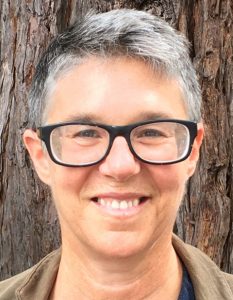

4/12 TALK | The Rise of Modern Vernacular Hebrew: How Language Shapes Identity (and Vice Versa)
Tuesday, April 12, 2022, 4:00 pm PDT - 5:15 pm PDT
In this talk, linguist Ivy Sichel will discuss the rise of modern vernacular Hebrew in the 1950s and related ideas — how using particular language variety can influence its speakers, and how speakers make the language their own.
Watch the talk now:
About this talk
How did the modern vernacular variety of Hebrew — the informal, everyday version of the language — come to eclipse the prestigious prescriptive variety of Hebrew to become the standard? How does value accrue to particular varieties of a language?
In this talk, Ivy Sichel will analyze the social meanings associated with the new native vernacular of Modern Hebrew, taking a positive stance towards the new native vernacular, which is constructed via differentiation from its alternatives (formal or text-based Hebrew).
The new vernacular is reflexive, and it speaks for itself with the authority of experience, as opposed to the traditional authority of the text. A speaker of modern vernacular Hebrew necessarily, and often unknowingly, possesses a positive attitude towards it, and is an active agent in the propagation of a new collective (of speakers) and its values.
The talk will explore this type of subjectivity, and the ways in which speakers participate in the dissemination of a collective set of ideas about the modern vernacular.
The talk will also explore the consolidation and dissemination of these values by particular individuals, with a focus on Ma Nishma, a weekly column written in Modern Hebrew published in the 1950s.
Event image from the “World Dictionary of Hebrew Slang,” written by Netiva Ben-Yehuda and Dan Ben-Amotz and published in 1982. Via the Jewish Women’s Archive.
About the speaker
 Ivy Sichel is Associate Professor of Linguistics at the University of California, Santa Cruz. Her work focuses on syntactic theory. She is also interested in the sociolinguistics of the revival of Hebrew speech, and has written about women’s contributions to the revival project at the turn of the 20th century (with Miri Bar-Ziv Levi), and about the relationship between the revival and the establishment of the State of Israel (with Uri Mor).
Ivy Sichel is Associate Professor of Linguistics at the University of California, Santa Cruz. Her work focuses on syntactic theory. She is also interested in the sociolinguistics of the revival of Hebrew speech, and has written about women’s contributions to the revival project at the turn of the 20th century (with Miri Bar-Ziv Levi), and about the relationship between the revival and the establishment of the State of Israel (with Uri Mor).
